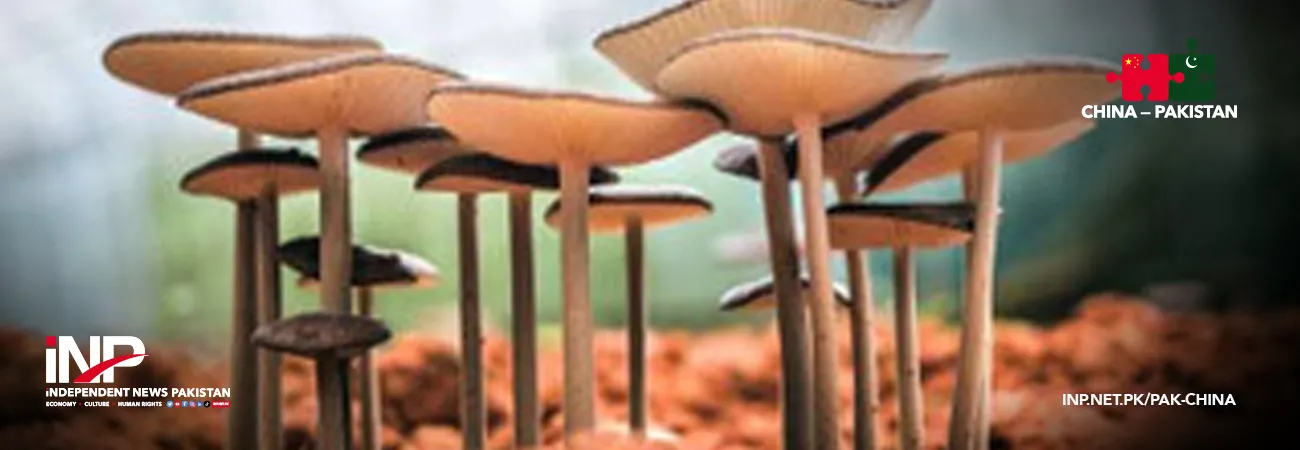i NEWS PAK-CHINA
FAISALABAD, May 12 (INP): Pakistan enjoys rich potential for mushroom exports through enhanced cooperation with China, and taping new markets. This was stated by Dr. Muhammad Muzammil Jahangir, an Associate Professor at the University of Agriculture, Faisalabad (UAF), who holds a Ph.D. from Zhejiang University, China and has been a leading researcher in the field of mushroom production, processing, and storage in an interview with Gwadar Pro. He highlighted the potential of strengthening cooperation with China in a bid to expand mushroom exports. “Pakistan’s rich agricultural resources and favorable climatic conditions make it a prime location for mushroom cultivation. With a focus on quality, variety, sustainable production methods and international cooperation, Pakistani mushrooms are poised for further gains in the international market,” Dr. Muhammad Muzammil Jahangir said.
Nutritional value, health benefits and economic viability of mushrooms, particularly button and oyster varieties, are key factors to driving export growth of mushrooms. In recent years, Pakistan has successfully exported mushrooms to countries including France, China, Switzerland, the United Kingdom, the United Arab Emirates, Spain, Oman, Mozambique and Malaysia. According to World Bank, Pakistan’s exports for the period 2019-2021 totaled approximately US$6,000,000, indicating a promising start. Dr. Muzammil Jahangir pointed out that despite this, Pakistan’s actual export volume in the mushroom industry was still relatively low compared to established exporters such as China, Netherlands and Poland.
He added, “Pakistani exporters face competition in terms of pricing, quality and market access. The country’s mushroom exports have not reached their full potential due to lack of technology and market access.” China is one of the world’s largest consumers and producers of mushrooms, with its annual output of edible fungi reaching more than 40 million tons, with a total value of over RMB 300 billion, accounting for nearly 80 percent of the world’s output. The Associate Professor believes that as a major exporter, China boasts advanced mushroom cultivation techniques and a robust supply chain that could improve Pakistan’s mushroom sector.
By sharing best practices and engaging in joint research and development initiatives, the two countries can benefit from this mutually beneficial partnership. In the context of agriculture and food processing, Pakistan and China have signed agreements and initiatives aimed at enhancing bilateral trade, technology transfer and agriculture development. Dr. Muzammil Jahangir highlighted that it was plausible that joint initiatives or exchanges in agriculture between the two countries could directly or indirectly benefit the mushroom industry.
He also proposes to establish specialized research and innovation centers dedicated to mushroom cultivation, processing, and value addition in Pakistan. “Through these centers, both sides can advance sustainable mushroom production and contribute to environmental conservation, economic development, and social well-being,” he added.
Credit: Independent News Pakistan (INP) — Pak-China









